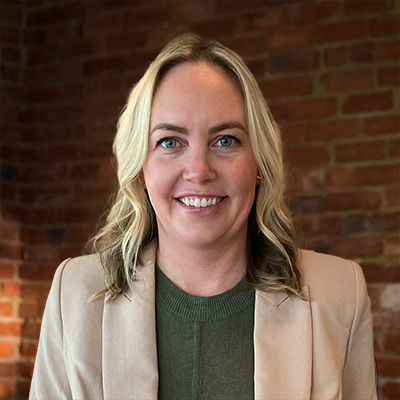At the Virginia Trial Lawyers Association’s annual convention in March 2010, Allen & Allen personal injury attorney Courtney Van Winkle spoke on the implications of online social networking in personal injury cases. Virginia Lawyers Weekly writer Alan Cooper covered her talk in an article published April 12, 2010.
Source: Virginia Lawyers Weekly
By Alan Cooper
Published: April 12, 2010
Social media and P.I. practice
One of the first questions Richmond personal injury attorney Courtney Van Winkle asks her clients is whether they are on any social networking sites.
If the answer is yes, she gives this legal advice: Shut it down. Or at least use the privacy settings on such sites as Facebook, by far the largest of the networks with upward of 300 million subscribers.
Van Winkle is more Internet savvy than many lawyers. She’s in charge of her firm’s Web site, and she has four kids who know all about social networking. She emphasized to her colleagues last month at the Virginia Trial Lawyers Association’s convention, “You need to be aware that it’s out there and educate yourself about it and educate your clients about it.”
“One picture, one comment, can be taken out of context” and do serious damage to a case, she said. Or, as happened in one of her cases, seriously enhance it.
The defendant was drinking when an accident occurred. The photo on his Facebook page – posted after the accident – has him hoisting a beer can.
Moreover, he made no effort to shield his responses in his MySpace profile to questions about his habits and preferences, acknowledging that he doesn’t smoke but does drink.
The casual voice used on Facebook and in blogs and Twitter posts increases the likelihood of untoward remarks, because the tone tends to be chatting with a friend rather than protecting legal interests, Van Winkle said.
The smoking gun is relatively rare on a social networking site, but knowledge about a party, witness or expert that can be gleaned from them can be extremely helpful in depositions, Van Winkle said.
Deponents can be placed off guard by questions that suggest that an adversary knows far more about them then they have any reason to suspect, she noted.
Of course, plaintiffs’ attorneys aren’t the only ones taking advantage of social networking sites or “aggregators,” sites such as 123people.com and www.pipl.com, which attempt to gather phone numbers, e-mail addresses, current and former residences, names of relatives and even criminal records from a search on one site.
In fact, Tom Messersmith, a Richmond lawyer who typically represents defendants, said he suspects that defense attorneys probably make more use of them because they’re “more likely to be looking for chinks in the armor of individuals.”
Messersmith and Van Winkle said Internet research on their own clients is just as important in warding off surprises as is digging into the lives of adversaries, witnesses or other third parties.
Many sites, especially those of aggregators, provide somewhat limited information as a “teaser” and offer to provide more details for a fee, but Messersmith and Van Winkle said they seldom pay up. The basic information typically is enough to get started, and payment of the fee seldom generates material worth the cost, they say.
“It depends on how strong the first nibble is before you decide to throw more bait in the water,” said Rob Wise, a Richmond attorney who frequently represents defendants in products liability cases.
And sometimes a nibble is all you get, especially if the person you’re looking for is John Jones, rather than a Tom Messersmith or a Courtney Van Winkle.
“You can get lost in it,” Van Winkle acknowledges of the temptation to keep clicking the mouse to make sure you have the right person and have mined all the information available about him.
That raises the question of who at a law firm does the searches – a partner, a younger associate who is perhaps more familiar with the Internet and social networking, or a paralegal?
Van Winkle says she likes to conduct the searches herself, especially when she’s getting ready to depose a defendant, a key witness or a defense expert. “It’s the most efficient way to do it.”
Wise said, “It depends on how electronically savvy the attorney is.” The chore may finally give recent law school graduates or paralegals a good use for “all the time they wasted in college playing on Facebook,” he said.
Messersmith said blogs and Twitter posts can be especially helpful in researching experts because the information typically is not protected by privacy settings and because experts often use them as marketing tools in which they express opinions that might be inconsistent with their testimony in a case.
Wise emphasized that protecting a Facebook account with privacy settings doesn’t prevent an adversary from getting access to the information through discovery. And he suggested that removal of protected material from the site might well be viewed as spoliation of evidence.
After all, he said, Facebook postings are just as much electronically stored information, or ESI, as are corporate e-mails.
Typically, Wise said, “Facebook won’t respond to subpoenas, but they will respond to releases” by subscribers obtained as part of discovery.
Van Winkle, Messersmith and Wise emphasized that attorneys violate legal ethics if they misrepresent themselves or have someone else pretend to be someone they are not in trying to get behind privacy settings.
In essence, computer searches for details of a person’s life are little different from such techniques as setting up surveillance on a plaintiff the defense suspects of malingering, so the same ethical rules apply, Messersmith said.
It’s just that it’s easier to get that information from the computer on your desk than it is to pay someone to follow him around, he said.
© Copyright 2010 Virginia Lawyers Media. All Rights Reserved.





